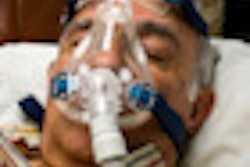The average sleep apnea sufferer stops breathing and loses oxygen between five and 30 times a night, according to the National Heart, Lung, and Blood Institute. This lack of oxygen leads to a host of complications, including high blood pressure, vascular disease, an abnormal heart rhythm, or even a fatal cardiac event.
Now, a team of University of Missouri researchers is exploring the changes in distinct brain regions that contribute to these symptoms in hopes of combating this common health issue.
The National Institutes of Health (NIH) awarded the team a $2.83 million multi-investigator grant to continue work on neurohumoral control of circulation and breathing -- studying how the brain responds to hypoxia, or the lack of oxygen.
The researchers use an experimental model of lab rats that produces traits that mimic periodic sleep apnea. Using state-of-the-art techniques and equipment in the Dalton Cardiovascular Research Center, the researchers identify specific cells and pathways within the brain that are involved in responses to hypoxia. They hope the information can be used to develop drugs or procedures to correct or slow the dangerous effects of sleep apnea.
While only in the first year of the four-year grant, the researchers have already advanced knowledge on how the brain adapts to diminished oxygen.
Copyright © 2010 DrBicuspid.com



















